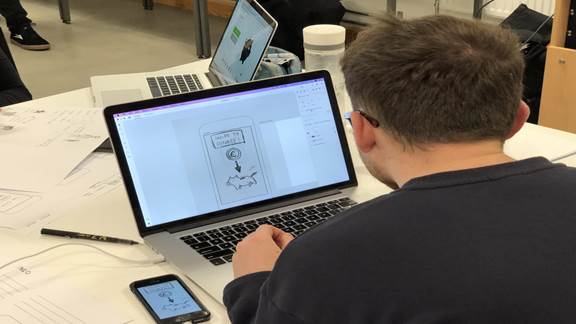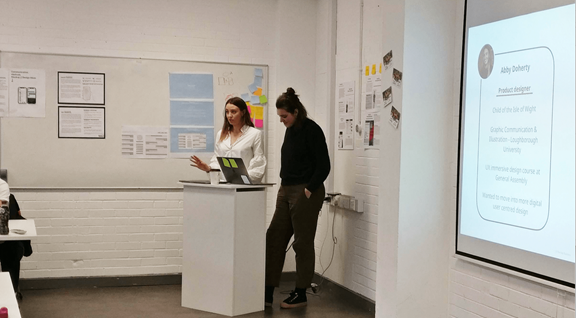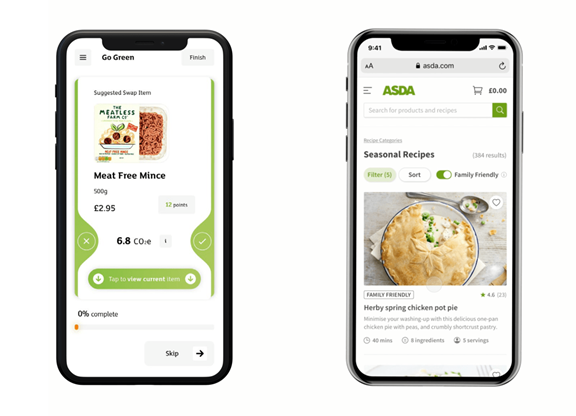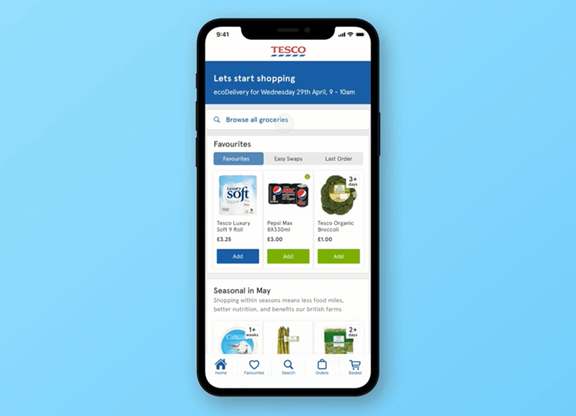What we did?
Remote working tools like Zoom and Notion were essential to planning the project, even before lockdown. Northumbria is almost 300 miles from our London office. First, we worked with the tutors Joyce Yee and Jamie Steane to shape the project and define the brief. It was vital the project aligned with their other modules, delivered on their learning outcomes and importantly provided the students with solid and individual projects for their portfolios.
How can we help and educate supermarket shoppers to see the climate impact of food products in-store/online and make more informed decisions and eventually generate lasting behaviour change?
We made the trip up to Northumbria university in January to meet the students. We had a morning session with 2nd and 3rd year students where we gave an introduction into who we were, our business and how we create products. In the afternoon we presented an 8 week project brief to the 3rd year students. To ensure the individuality of the projects of this cohort we allocated the groups different supermarkets so they each had different brand purposes, target markets and different existing products to work with.
Over the course of the 8 weeks, we provided written feedback every two weeks on work they were submitting online to their tutors. There was a remote mid point check-in where the students gave presentations on concepts they had created based on initial research. Then finally, their end of project presentations, which unfortunately were also remote due to covid-19 travelling restrictions.



